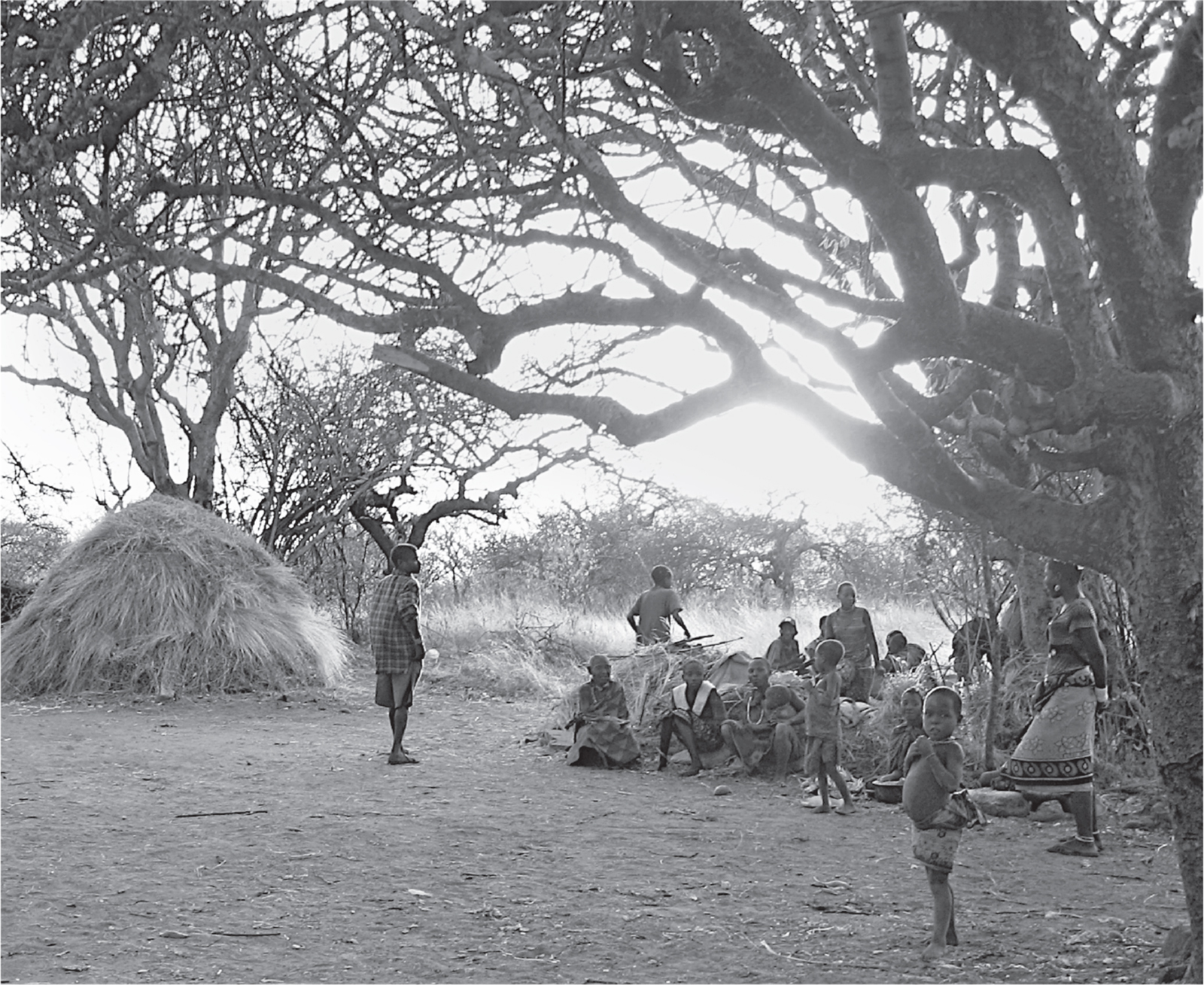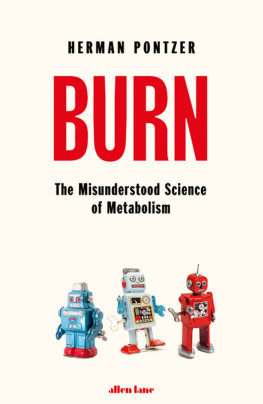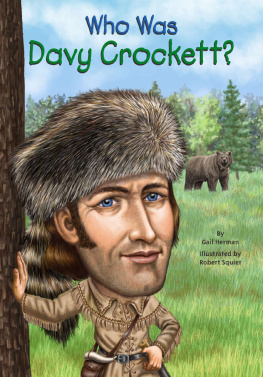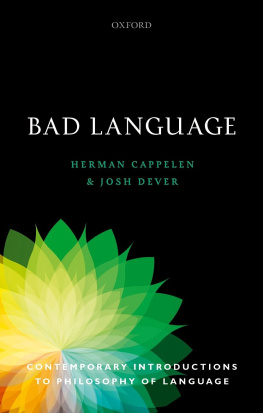Herman Pontzer - Burn
Here you can read online Herman Pontzer - Burn full text of the book (entire story) in english for free. Download pdf and epub, get meaning, cover and reviews about this ebook. year: 2021, publisher: Penguin Books Ltd, genre: Romance novel. Description of the work, (preface) as well as reviews are available. Best literature library LitArk.com created for fans of good reading and offers a wide selection of genres:
Romance novel
Science fiction
Adventure
Detective
Science
History
Home and family
Prose
Art
Politics
Computer
Non-fiction
Religion
Business
Children
Humor
Choose a favorite category and find really read worthwhile books. Enjoy immersion in the world of imagination, feel the emotions of the characters or learn something new for yourself, make an fascinating discovery.
- Book:Burn
- Author:
- Publisher:Penguin Books Ltd
- Genre:
- Year:2021
- Rating:3 / 5
- Favourites:Add to favourites
- Your mark:
- 60
- 1
- 2
- 3
- 4
- 5
Burn: summary, description and annotation
We offer to read an annotation, description, summary or preface (depends on what the author of the book "Burn" wrote himself). If you haven't found the necessary information about the book — write in the comments, we will try to find it.
Burn — read online for free the complete book (whole text) full work
Below is the text of the book, divided by pages. System saving the place of the last page read, allows you to conveniently read the book "Burn" online for free, without having to search again every time where you left off. Put a bookmark, and you can go to the page where you finished reading at any time.
Font size:
Interval:
Bookmark:


- Chapter 1
The Invisible Hand - Chapter 2
What Is Metabolism Anyway? - Chapter 3
What Is This Going to Cost Me? - Chapter 4
How Humans Evolved to Be the Nicest, Fittest, and Fattest Apes - Chapter 5
The Metabolic Magician: Energy Compensation and Constraint - Chapter 6
The Real Hunger Games: Diet, Metabolism, and Human Evolution - Chapter 7
Run for Your Life! - Chapter 8
Energetics at the Extreme: The Limits of Human Endurance - Chapter 9
The Past, Present, and Uncertain Future of Homo energeticus
Herman Ponzter is Associate Professor of Evolutionary Anthropology at Duke University and Associate Research Professor of Global Health at the Duke Global Health Institute.
For Janice, Alex, and Clara

The lions woke me up around two in the morning. The sound wasnt loud so much as big like the moaning hydraulics of a garbage truck interrupted by the coughs and grunts of an idling Harley-Davidson. My first hazy, sleepy reaction was a kind of grateful joy. Ah, the sounds of wild Africa! I stared up through the gossamer mesh roof of my tent at the stars overhead, felt the night breeze pushing through the dry grass and thorny acacia trees and up against the tents thin nylon walls, carrying the lions chorus. I felt fortunate to be there, camped in my little tent in the middle of the vast East African savanna, a place so remote and untrammeled that there were lions just a few hundred yards off. How lucky was I?
Then a pang of adrenaline and fear. This wasnt a zoo or some tourist safari. Those lions werent pretty pictures in a National Geographic magazine or a PBS nature show. This was real life. A gang of heavily muscled 300-pound feline killing machines was a short stroll away, and they sounded anxious. Maybe even hungry? Of course they could smell me. After days of camping I could smell myself. What was my plan when they came for my soft American carcass, the warm triple crme brie of human flesh? I wondered how close theyd get before I heard them in the tall grass, or if the end would come unannounced, an explosion of claws and hot angry teeth crashing through walls of the tent.
I kept thinking it through, trying to be rational. Judging by where the sound was coming from, the lions would have to walk past Daves and Brians tents first. I was Door Number 3 in this particular game of chance. That meant 1 in 3 odds of being eaten by lions tonight, or, if one was a glass-two-thirds-full kind of person, a 67 percent chance of not being eaten. That was a comforting thought. Plus, we were with the Hadza, on the outskirts of their camp, and nobody messes with the Hadza. Sure, hyenas and leopards would occasionally slink past their grass huts at night looking for scraps or unattended babies, but the lions seemed to keep their distance.
The fear began to dissipate. Drowsiness seeped back in. Id probably be fine. Besides, if one had to be eaten by lions, it seemed preferable to be asleep at the time, at least until the last possible moment. I fluffed up the pile of dirty clothes I was using for a pillow, adjusted my sleeping pad, and went back to sleep.
It was my first summer working with the Hadza, a generous, resourceful, and badass people who live in small camps scattered about the rugged, semiarid savanna around Lake Eyasi in northern Tanzania. Anthropologists and human biologists like me like to work with the Hadza because of how they make their living. The Hadza are hunter-gatherers: they have no agriculture, no domesticated animals, no machines or guns or electricity. Each day they wrest their food from the wild landscape around them, using nothing but their own hard work and guile. Women gather berries or dig wild tubers from the rocky soil with stout pointed sticks, often with a child on their back in a sling. Men hunt zebra, giraffe, antelope, and other animals, with powerful bows and arrows they fashion themselves from branches and sinew, or chop open trees with small axes to extract wild honey from beehives built in the hollows of limbs and trunks. Kids run and play around the grass huts of camp or head out in groups to get firewood and water. Elders either head out foraging with the other adults (they are remarkably spry even into their seventies) or stay back at camp to keep an eye on things.
This way of life was the norm worldwide for over two million years, from the evolutionary dawn of our genus, Homo, through the invention of farming just twelve thousand years ago. As farming spread and brought towns, urbanization, and eventually industrialization in its wake, most cultures traded in their bows and digging sticks for crops and brick houses. Some, like the Hadza, held on proudly to their traditions even as the world around them changed and began to encroach. Today, these few populations are the last living windows into humanitys shared hunter-gatherer past.
Along with my good friends and fellow researchers Dave Raichlen and Brian Wood and our research assistant, Fides, I was in Hadzaland (as we casually refer to their homeland) in northern Tanzania to learn how the Hadza lifestyle is reflected in their metabolismthe way their bodies burn energy. Its a simple but incredibly important question. Everything our bodies dogrowing, moving, healing, reproducingrequires energy, and so understanding how our energy is spent is the first foundational step in understanding how our bodies work. We wanted to know how the human body functions in a hunting and gathering society like the Hadza, where people were still an integral part of a functioning ecosystem, with a lifestyle still similar in important ways to that of our deep past. No one had ever measured daily energy expenditure, the total number of calories burned per day, in a hunter-gatherer population. We were eager to be the first.
In the modernized world, far removed from the daily work of acquiring our food with our bare hands, we pay little attention to energy expenditure. If we think about it at all, we think of the latest diet, our workout plan, whether weve earned that donut we crave. Calories are a hobby, a nugget of data on our smartwatches. The Hadza know better. They understand intuitively that food and the energy it holds are the fundamental stuff of life. Each day they confront an ancient and unforgiving arithmetic: acquire more energy than you burn or go hungry.
 Figure 1.1. Early evening in a Hadza camp. Acacia trees provide a shady oasis on the savanna. Men, women, and children relax and discuss the days events. Note the grass house at left.
Figure 1.1. Early evening in a Hadza camp. Acacia trees provide a shady oasis on the savanna. Men, women, and children relax and discuss the days events. Note the grass house at left. We woke up with the sun still orange and weak on the eastern horizon, the colors of the trees and grass washed out in the diluted morning light. Brian started a cooking fire in our small, Hadza-style three-stone hearth and set a pot of water on to boil. Dave and I milled around bleary-eyed, needing caffeine. Soon enough we were all drinking hot mugs of Africafe instant coffee and spooning up plastic bowlfuls of instant oatmeal and jelly. We discussed research plans for the day. We had all heard the lions during the night and joked nervously about how close they sounded.
Next pageFont size:
Interval:
Bookmark:
Similar books «Burn»
Look at similar books to Burn. We have selected literature similar in name and meaning in the hope of providing readers with more options to find new, interesting, not yet read works.
Discussion, reviews of the book Burn and just readers' own opinions. Leave your comments, write what you think about the work, its meaning or the main characters. Specify what exactly you liked and what you didn't like, and why you think so.












